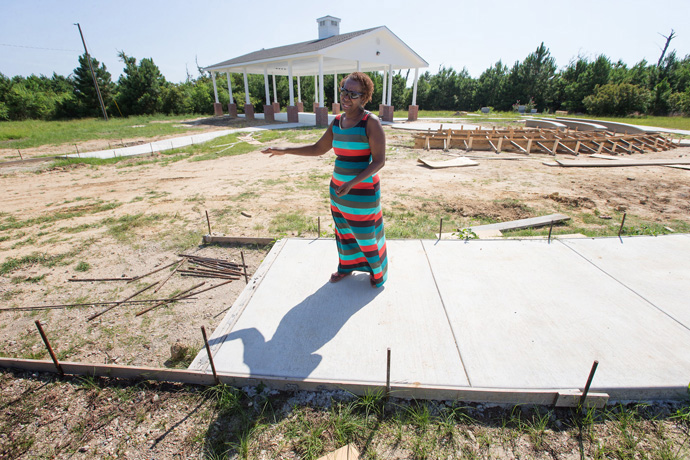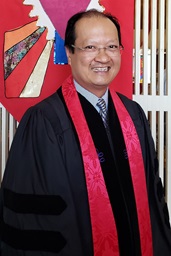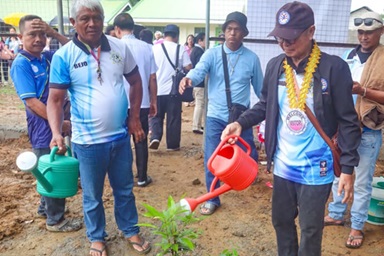Key Points:
- Gulfside Assembly on the Mississippi Gulf Coast will host events April 27-29 to raise money to finance its ministries for African Americans, low-income people and children.
- The property has been a place where Black families could relax and learn, especially during segregation when other facilities were off limits.
- The emphasis has shifted away from bricks and mortar because insurance costs are prohibitive after the area was devastated by hurricanes in 1969 and 2005.
Seeds have been planted at Gulfside Assembly, literally and metaphorically.
“We have a community garden that's going full steam ahead,” said Althea Belton, who is in the second of a six-year term as a commissioned missionary at the historic United Methodist property in Waveland, Mississippi.
“The seedlings have been planted by the (Boys and Girl Club) children. And that's what we want to plant in this community, too: seeds of hope and seeds of love.”
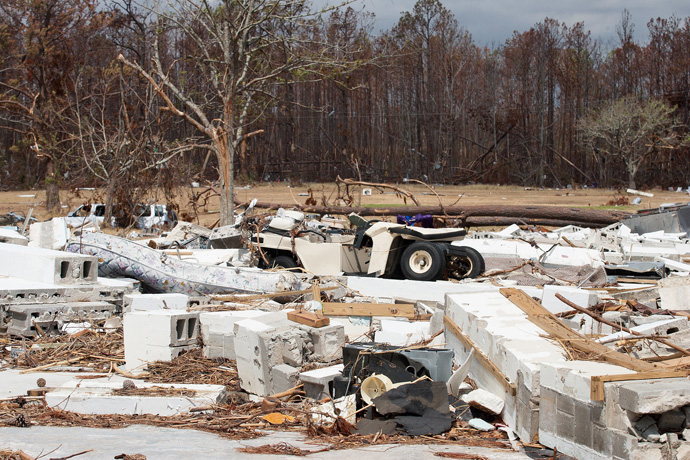
Gulfside Assembly, historically an oasis for African Americans on the Gulf Coast for relaxation and spiritual renewal, is celebrating its 100th anniversary this year. Officials hope to use the occasion to raise significant money for the property, which is still recovering from nearly being wiped out in 2005 by Hurricane Katrina.
“It’s just been one of those places where it was comfortable for African Americans,” said the Rev. Vincent Harris, a district superintendent in the Texas Conference and member of the Gulfside board.
“Gulfside was a destination for people to learn and to enjoy the Gulf and the beach. … But what people really were drawn to was the spiritual growth and spiritual development and relationships with people all across the country, especially African Americans.”
A short history of Gulfside Assembly
Gulfside Assembly was founded in 1923 by Bishop Robert E. Jones, the first African American episcopal leader of the Methodist Episcopal Church, according to the Gulfside website.
Jones bought 300 acres and leased another 316 from Mississippi for use as the Gulfside campus. Had state officials known Jones’ race, he might not have been able to make the purchase, said the Rev. Vincent Harris, a district superintendent in the Texas Conference and member of the Gulfside board.
“If you look at (Jones’) complexion, you can see he looks to be white,” Harris said. “But he was actually an African American. So, they did not know he was African American when he was purchasing the acreage there.”
The resort provided a place for Black people to relax in a time when such facilities were rare because of segregation.
“They came from Gulfport, Biloxi (both in Mississippi), all the way down the Gulf Coast to Gulfside because that was the only place that we could go to the beach,” said Cheryl Thompson, executive director of Gulfside. “They came for recreation and cultural events. … Gulfside was founded on the pillars of religion, culture, recreation and education.”
Among the activities over the years was a school for impoverished boys in Mississippi, YMCA, 4-H and Boys and Girls Club events. Picnic spots were rented out to Methodist organizations.
A chapel, 100-room inn and 1,000-seat auditorium were added in the 1940s. By 1960, when Jones’ passed away, Gulfside had retired its debts and was operating at a profit.
After The United Methodist Church was founded in 1968, Gulfside hosted youth retreats and mission conferences. Programs to help inner-city youth from New Orleans were added.
In 1969, Hurricane Camille destroyed buildings at Gulfside, but a fundraising and rebuilding program succeeded. Then in 2005, Hurricane Katrina destroyed everything, just months after a new complex of buildings designed to welcome vacationers was finished.
In 2016, an open-air pavilion marked the first success in rebuilding. But insurance costs and building codes make further construction an expensive proposition.
When Hurricane Camille hit in 1969, some buildings at the resort were destroyed. Hurricane Katrina, 36 years later, wiped out all of them, including a new complex designed to draw vacationers.
“Waveland was ground zero for Hurricane Katrina,” said Cheryl Thompson, executive director of Gulfside. “Not only was Gulfside demolished, the entire town was demolished. … Everyone was really kind of depressed and had given up hope that it was ever coming back.
“But it is coming back.”
The hope is to raise about $150,000 from activities celebrating the 100th birthday, Thompson said. On April 27-29, events include a golf tournament and banquet, both fundraisers. Sponsorships are for sale, ranging from less than $500 to $15,000.
“We also have events planned throughout the year for the 100th anniversary,” Thompson said.
“We're looking for donors,” she added. “Our board members who are located all over the country have a responsibility to seek donors to help us support Gulfside. From that list we're looking for those donors who can sustain us on an ongoing basis.”
There also will be a Gulfside exhibit at Waveland's Ground Zero Hurricane Museum and a reception at a local art studio.
“Saturday morning (April 29), we have our community service project, which is a food giveaway,” Thompson said. “That will be followed by a worship service on the beach, and a brunch to close us out.”
The vision going forward is different than the pre-Katrina plan. Insurance costs and building standards make the construction of new facilities difficult.
“We just can't afford it,” Harris said. “There's no way insurance-wise.”
The Rev. Elijah Stansell, chair of the Gulfside board of directors and district superintendent of the Central South District of the Texas Conference, also said that any new construction is unlikely for now.
“We are not in any form or fashion into bricks and mortar,” Stansell said. “We are basically trying to really build our foundation … and trying to reestablish our significance advocating for justice for the underserved and for community development.”
Gulfside works in partnership with the Mississippi Conference and local congregations as far away as New Orleans, Stansell said.
One priority is to teach youth basic life skills, Belton said, along with a mentorship component with the help of volunteers from different professions.
“Hopefully, they'll fall in love with one of those professions and want to pursue that in life,” Belton said. “We're also having people who are in different professions, like maybe … an auto mechanic that can teach them basic skills of how to check the fluids in their automobile, how to check tire pressure, how to change oil and how to change a tire.”
Gulfside conducts monthly meetings with area community organizations and nonprofits to help coordinate meeting needs in the community.
“We noticed there was a little bit of a disconnect in knowing each other and what exactly each other offers,” Belton said. “We knew we could make a bigger impact with the resources that we already have in hand. If an organization is unable to meet a need, they refer to another organization. That is working quite well.”
One success story involves a family with nine children, she said.
“We were able to make sure that family had food and school uniforms,” Belton said. Additionally, they were able to provide 100 uniform vouchers to help other parents.
“That was during a time when the economy was really rough on families, because the gas prices were so high and food was so expensive,” she said. “It's just been a wonderful, mutual relationship, and what I love about it is it's an ecumenical group from all denominations. … We have just come together in love and mutual respect for one another, just meeting the needs of the community and trying to be the hands and feet of God in the community.”
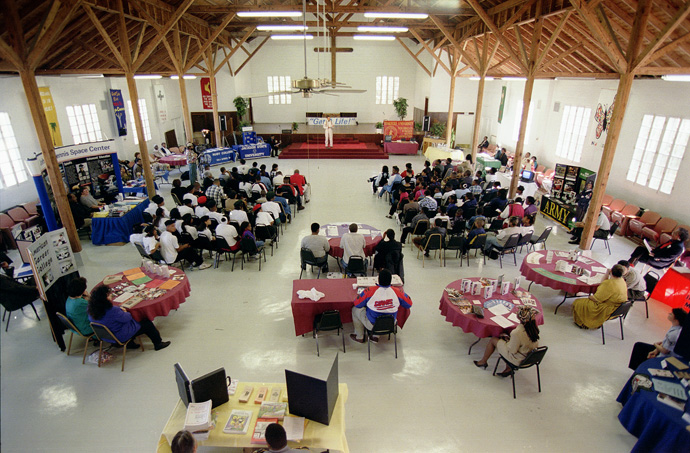
While the main Gulfside property has only one structure left — an outdoor pavilion — the Mississippi Conference gave it a decommissioned church in Waveland to use as office space.
The main property does get used for events like Easter egg hunts, weddings and other events. But the beach has eroded.
“We need to first of all have some sand brought in,” Belton said. “And on the grounds, we would like to also see maybe some recreational things like pickle ball or tennis courts or something like that. We're looking into that kind of stuff, and what kind of capital it will take.”
But “storm after storm, trauma after trauma after trauma” have taken a toll that hasn’t been overcome yet, Belton said.
“But we are resilient people,” she said. “We just have to have faith. … We are going forward in ministry and we're not letting this trauma keep us down or bound. We are determined to just keep going, keep marching forward, keep going forward with the will of God and by the power of God.”
Patterson is a UM News reporter in Nashville, Tennessee. Contact him at 615-742-5470 or newsdesk@umcom.org. To read more United Methodist news, subscribe to the free Daily or Weekly Digests.
